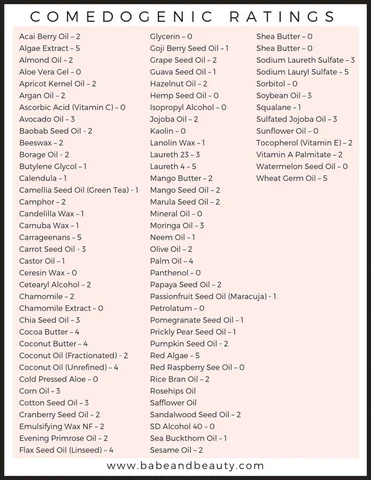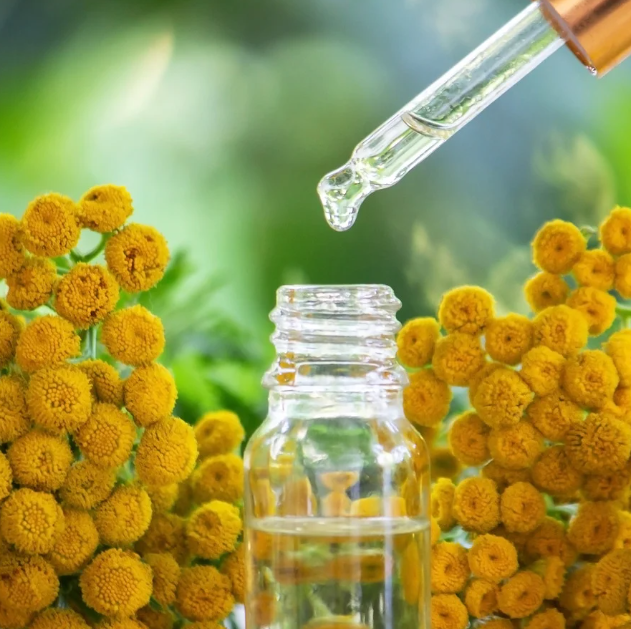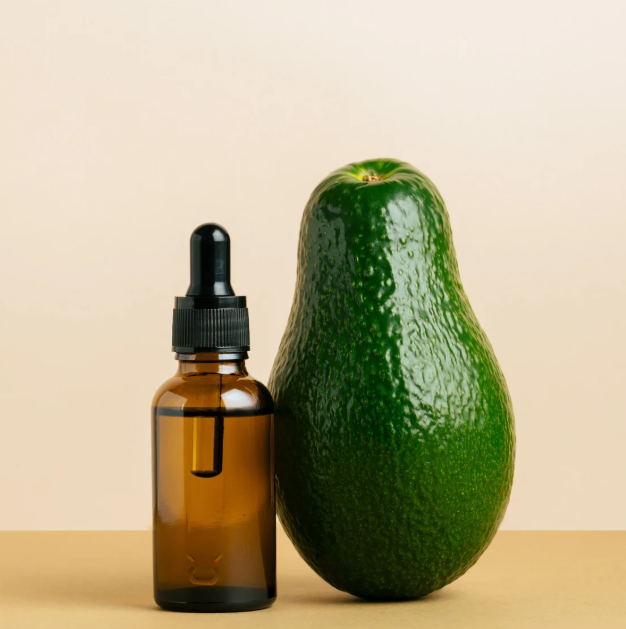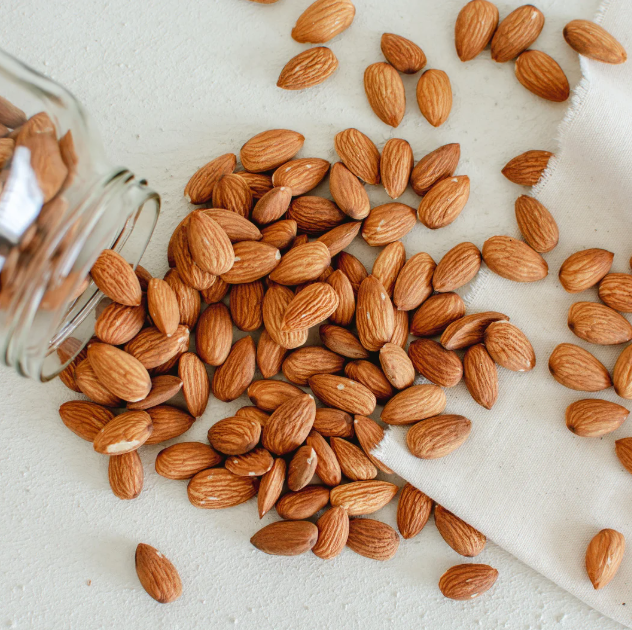Myths and Facts About Natural Oils on Oily Skin

People with oily skin are often advised to avoid any kind of oils in their skincare routine. We frequently hear claims like “Oils clog pores” or “If your skin is oily, never add more oil.”
But are these beliefs really justified?
Lately, natural oils such as immortelle (helichrysum), avocado, olive, and almond oil have gained popularity in skincare—even for oily skin. Why do you think that is?
In this article, we’ll explore the most common myths and facts about using these oils on oily skin. We’ll compare marketing claims with insights from experts and educational sources to determine what really works.
Our goal is to provide a simple and practical explanation of how these oils interact with oily skin—when they can be beneficial and when they might do more harm than good.
Myth #1: “Oils Are Bad for Oily Skin Because They Clog Pores”
This is one of the most widespread misconceptions. The truth is that not all oils behave the same way on the skin. Some oils can indeed clog pores, but others can hydrate and soothe the skin without causing breakouts.
Dermatologists emphasize that oily-skinned individuals do not have to avoid oils altogether—the key is choosing the right oil for your skin type. So, oils themselves are not the enemy of oily skin; rather, choosing the wrong oil or using it incorrectly can be the problem.
Why Do People Think Oils Clog Pores?
Some oils are comedogenic, meaning they have a higher likelihood of blocking pores and potentially leading to blackheads and breakouts. For example, coconut oil has a comedogenic rating of 4 out of 5 (very high likelihood of clogging pores), so it can worsen the condition of oily skin for many people.
On the other hand, some oils have a low comedogenic rating and are much less likely to clog pores. There is a scale from 0 to 5 that measures how likely an oil is to block pores—0 means it does not clog pores at all, while 5 means it almost certainly will.
Most natural oils fall somewhere in the middle of this scale, so knowing where each oil stands is crucial when selecting the right one for your skin.

Additionally, every skin is different. What causes breakouts for one person might work perfectly for another. That’s why dermatologists emphasize that the comedogenic scale is not an absolute rule—individual reactions vary.
Other factors also play a role, such as genetics, skin sensitivity, hormones, and overall skincare routine.
With that in mind, let’s take a closer look at some of the most commonly used oils—immortelle, avocado, olive, and almond oil—and explore the available research and real-world experiences regarding their effects on oily skin.
Immortelle Oil – A Precious Oil That Won’t Make Your Skin Greasy
Extracted from the Helichrysum flower (also known as the “everlasting flower”), immortelle oil is highly valued in skincare, particularly for skin regeneration and anti-aging benefits.
The good news for oily skin is that immortelle oil is lightweight and non-comedogenic—meaning it won’t clog pores. In fact, it has anti-inflammatory properties, and some studies suggest that compounds found in immortelle have antimicrobial effects that can be beneficial for treating acne and oily skin.
This means it can help calm inflammation and breakouts, reduce redness, and even speed up the healing of acne scars and blemishes. Many users report that skincare products containing immortelle oil help fade post-acne marks more quickly.
It pairs well with almond oil, as this combination is fast-absorbing, hydrating, and non-comedogenic, making it suitable for both oily and combination skin.
Since immortelle is an essential oil, it should always be used in very small amounts—just a few drops diluted in a carrier oil or cream. Applying pure immortelle oil directly to the skin is not recommended, as it needs to be diluted to avoid irritation.
However, when used correctly, immortelle oil is a perfect example of a beneficial oil that won’t clog pores. Thanks to its rich antioxidant content and anti-inflammatory compounds, it nourishes the skin while reducing imperfections—making it a great option for those with oily or acne-prone skin.

Avocado Oil – Nourishing, But Is It Suitable for Oily Skin?
Avocado oil is well known for being rich in vitamins A, D, and E, as well as antioxidants and essential fatty acids. It deeply nourishes and softens the skin, which is why it’s commonly found in hydrating skincare products.
However, unlike immortelle oil, avocado oil is thicker and absorbs more slowly, raising concerns that it might be too heavy for oily skin.
On the comedogenic scale, some sources classify avocado oil as moderate to highly comedogenic, often rating it 3 out of 5, meaning it has a medium tendency to clog pores. Because of this, people with severe acne or very oily skin are often advised to use it with caution.
That said, dermatologists take a more nuanced approach. Avocado oil is generally considered non-comedogenic, meaning it’s less likely to clog pores. However, those with very oily or acne-prone skin should monitor how their skin reacts, as any oil can potentially cause breakouts in sensitive individuals.
Interestingly, the anti-inflammatory properties of avocado oil may actually be beneficial for acne-prone skin. Since inflammation plays a key role in the development of acne, ingredients that help calm irritation can be useful. However, this applies to moderate use—just a few drops massaged into the skin or blended into a cream, rather than applying a thick layer.
For those with oily skin who want to try avocado oil, a practical approach is to use it as a rinse-off treatment. One method is to apply a thin layer of avocado oil for a few minutes, then wash it off with warm water. This way, the skin gets hydration and vitamins without leaving behind a greasy residue that might clog pores.
Another option is to mix a few drops into your nighttime moisturizer or use it as a final step after applying a hydrating cream—in this case, the oil acts as a barrier, locking in moisture without overwhelming the skin. Using avocado oil sparingly reduces the chances of excessive shine or pore congestion.
What Do Users Say?
Real-life experiences with avocado oil are mixed, which is not surprising—everyone’s skin is different. Some people with oily skin praise it for making their skin softer and calmer overnight, while others find it too heavy and notice clogged pores if they use it daily.
If you decide to try it, start slow—apply it once or twice a week in the evening and observe how your skin reacts. If you notice new breakouts, avocado oil might not be the best choice for your regular routine, but you can still use it as a pre-wash mask to avoid buildup.
Final Verdict
Avocado oil is rich and nourishing—it can help calm inflammation and support skin repair, but its heaviness may lead to clogged pores for some people. It’s not a villain for oily skin, as the myth suggests, but it does require careful use. The key is moderation, testing, and listening to your skin’s needs.
If it works for you—great! You’ll enjoy its vitamin-rich benefits and deep hydration. If it feels too heavy or causes congestion, you’re probably better off choosing a lighter oil that suits your skin’s unique needs.

Olive Oil – Natural, But Not Always the Best Choice for Acne-Prone Skin
Olive oil is one of the most well-known plant-based oils, with a long history of use in skincare, especially in Mediterranean cultures. It’s often praised as a “natural moisturizer full of antioxidants”, and that claim is true—it contains vitamins E and K, polyphenols, and other beneficial compounds.
However, when it comes to oily and acne-prone skin, olive oil has several downsides that are often overlooked in marketing.
Why Can Olive Oil Be Problematic for Oily Skin?
First and foremost, olive oil is quite heavy and slow to absorb. It tends to leave a greasy layer on the skin, which acts as an occlusive barrier. While this can be beneficial for dry skin, it can be problematic for oily skin, as sebum (natural skin oil), dirt, and dead skin cells can get trapped underneath this layer—creating the perfect conditions for clogged pores.
Research has shown that olive oil has mild comedogenic properties. In a standard “rabbit ear” comedogenicity test, olive oil received a rating of 2 out of 5, meaning it has a low to moderate likelihood of clogging pores. While this is not as high as coconut oil, it still suggests that people with sensitive or acne-prone skin may experience breakouts when using it regularly.
Because of this, some dermatologists suggest that while olive oil has general benefits for the skin, it may not be the best option for those struggling with acne. Instead, they recommend opting for lighter, non-comedogenic oils such as jojoba oil, grapeseed oil, rosehip oil, sunflower oil, or immortelle oil.
What Does This Mean in Practice?
If you have oily, acne-prone skin, olive oil may not be the best choice as a daily moisturizer or skincare staple. However, that doesn’t mean you have to avoid it entirely. For example, it can be useful for occasional facial massage or makeup removal—particularly in the oil cleansing method (OCM).
Many people successfully use olive oil to remove waterproof makeup or as the first step in a double-cleansing routine. However, it’s essential not to let it sit on the skin for too long. After using it, always wash your face thoroughly with a gentle gel or foam cleanser to ensure that no oil residue remains and that pores stay clear.
Another important factor to consider is the type of olive oil you’re using. There’s a significant difference between refined and extra virgin olive oil. Extra virgin olive oil is cold-pressed and retains more antioxidants and beneficial compounds, while refined olive oil undergoes processing that may reduce some of its skin-friendly properties.
If you decide to use olive oil in your skincare routine, it’s always best to choose high-quality, extra virgin olive oil to get the most out of its natural benefits.
Almond Oil – A Gentle Oil That May Suit Oily Skin (With Some Conditions)
Sweet almond oil is often described as “hypoallergenic,” gentle, and suitable even for sensitive skin and baby care. Unlike olive oil, almond oil has a lighter texture and absorbs more quickly, leaving the skin with a silky feel. It is rich in vitamin E and essential fatty acids, which help nourish and protect the skin.
What About Comedogenicity and Oily Skin?
Compared to many traditional oils, almond oil has a lower comedogenic potential. It is typically rated around 2 out of 5 on the comedogenic scale, meaning it has a low to moderate chance of clogging pores.
In other words, for most people, it won’t block pores, especially when used in moderation. This is good news because almond oil is one of the oils that many people with oily skin can use without issues.

How Does Almond Oil Benefit Oily Skin?
Almond oil acts as both an emollient and an occlusive—meaning it softens the skin and fills in tiny cracks in the skin barrier, while also creating a light film that helps prevent moisture loss.
For oily skin that is also dehydrated (yes, skin can be both oily and lacking moisture!), this can be beneficial because it hydrates without feeling heavy. Additionally, almond oil contains antioxidants and anti-inflammatory compounds, which may help calm irritation.
Some sources highlight that the zinc and vitamin A content in almond oil may offer mild benefits for acne-prone skin—not as a cure, but as a gentle support for skin dealing with inflammation.
When Should You Be Cautious?
While almond oil is generally well-tolerated, there are a few things to keep in mind:
- If you have severe acne and your dermatologist has advised a completely oil-free routine, it’s best to follow their recommendations. Even though almond oil is mild, any additional oil on the skin’s surface could worsen breakouts in extremely acne-prone skin.
- If you have a nut allergy, avoid almond oil—this may seem obvious, but just because something is natural doesn’t mean it’s hypoallergenic for everyone.
Final Thoughts: Is Almond Oil Safe for Oily Skin?
Many skincare brands promote almond oil as “non-comedogenic”, and compared to heavier oils, this is generally true. Most educational sources agree that almond oil is safe for oily skin, provided it’s used in moderation.
Among users, almond oil gets a lot of positive reviews, as it adds softness and a healthy glow without feeling too heavy. Some people use it as a nighttime serum (a few drops on damp skin), as a makeup remover, or mixed into their moisturizer.
As with any oil, the key is to listen to your skin—if it works well for you, enjoy its benefits. If you notice any congestion or irritation, it might be best to switch to a lighter alternative.
When Do Oils Help Oily Skin, and When Can They Be a Problem?
Looking at the four popular oils we’ve discussed, we can see some common themes that are worth summarizing. Natural oils can be great allies for oily skin in certain situations:
- When oily skin is also dehydrated (a common combination), a few drops of the right oil can help restore moisture and balance. Many people who have stripped their skin with harsh cleansers notice an improvement when they introduce a lightweight oil or oil-based serum at night—their skin produces less sebum because it’s no longer overcompensating for dehydration.
- Some oils have anti-inflammatory and antimicrobial properties, which can help with acne control. Oils don’t just “make the skin greasy”—many have a soothing effect. We’ve seen that immortelle oil contains compounds that target acne bacteria and inflammation, while avocado oil helps calm irritation with its antioxidant content.
- Oils help protect the skin barrier. Oily skin can still have a compromised or irritated surface layer, especially if you use strong acids, retinol, or acne treatments. Lightweight oils like squalane, jojoba, or almond oil help strengthen the skin barrier and prevent excessive water loss—without clogging pores.
When Can Oils Be a Problem?
On the other hand, oils can cause issues if they aren’t chosen wisely for your skin type:
- Heavy, slow-absorbing oils (such as olive oil, cocoa butter, or coconut oil) are more likely to clog pores. Oily skin already produces enough sebum, so adding thick oils that sit on the surface can be too much. Oils rich in linoleic acid (a type of polyunsaturated fat) tend to be better suited for oily skin, while oils high in oleic acid are more occlusive and can be too heavy. The composition of the oil matters—what’s inside the bottle makes a difference.
- Overuse of oils—for example, applying a large amount in the morning under makeup—can make the skin look even shinier and oilier throughout the day. Oils tend to work better at night or as a short-term treatment, rather than being a part of a morning routine (unless they are very dry, fast-absorbing oils—and even then, only in small amounts).
- Improper cleansing: If you use oils (whether as a moisturizer or for cleansing), it’s essential to properly wash your face in the morning and at night. Leftover oil can mix with sweat and dirt, leading to clogged pores.
A Common Myth: “Oily Skin Doesn’t Need Hydration”
Many people who avoid oils also mistakenly believe that oily skin doesn’t need hydration. However, oily skin still needs moisture. If you dry it out completely, your sebaceous glands may overcompensate and produce even more oil in an attempt to restore hydration.
That’s why even oily skin needs a hydrating cream or serum that provides water-based moisture, and a small amount of oil can help seal that hydration in. The key is balance—finding the right amount and type of oil for your skin’s unique needs.
Tips for Safely Using Oils on Oily Skin
Based on everything we’ve discussed, here are some practical tips to help you enjoy the benefits of oils while minimizing the risk of clogged pores:
- Choose oils with a low comedogenic rating: Good options for oily skin include jojoba oil, grapeseed oil, rosehip oil, hemp seed oil, and immortelle oil—these are considered non-comedogenic (rated 0–1) or very mild. Oils like avocado and almond oil can also be suitable for many people, while olive and coconut oil are better avoided for daily use on the face.
- Less is more: For the entire face, only a few drops of oil are usually enough. There’s no need to drench your skin in oil. A thin layer will do the job—your skin will absorb what it needs, and your pores won’t get overwhelmed with excess oil.
- Apply on damp skin or over a serum: Oils spread more easily and absorb faster when applied to slightly damp skin (for example, right after cleansing or after misting with a toner/hydrosol). You can also apply a lightweight, water-based moisturizer or serum first, then seal it in with a few drops of oil. This prevents the oil from sitting on the surface and helps it blend with the skin’s natural moisture.
- Observe how your skin reacts: Whenever you introduce a new oil (or any skincare product), monitor your skin over the next few weeks. If you notice more blackheads, inflamed breakouts, or irritation, stop using it and determine whether the oil or another factor is to blame. Sometimes, a combination of products can cause issues—for example, layering oil over a cream with comedogenic ingredients may lead to breakouts. That’s why it’s best to introduce one new product at a time to see what works for you.
- Quality matters: Always choose cold-pressed, pure oils without unnecessary additives, or go for products from reputable brands. Cheap oils can be diluted or lower in quality, leading to irritation or breakouts. Also, store oils properly (in a cool, dark place) to prevent them from going rancid, as oxidized oils contain damaging compounds that can harm the skin.
- Do a patch test: If you have sensitive or acne-prone skin, always perform a small patch test before applying a new oil to your entire face. Dab a little oil on an area near your jawline or behind your ear and observe the reaction for a few days. This can help prevent bigger skincare mishaps if the oil turns out not to be suitable for your skin.
By following these guidelines, you can incorporate oils into your skincare routine safely and effectively, enjoying their benefits without unwanted side effects.
Conclusion
Natural oils are not the enemy of oily skin, but they do require an informed choice and proper use. The misconception that oils inevitably worsen oily skin largely comes from overgeneralization—while some oils (like mineral oil or very heavy plant oils) can indeed clog pores, others can actually improve skin condition.
The examples of immortelle, avocado, olive, and almond oil clearly show how differently oils can behave—from extremely lightweight and healing (immortelle) to nourishing but well-tolerated (avocado, almond), to those that require caution (olive oil).
While expert recommendations and user experiences are valuable, the most important factor is how your own skin reacts. The combination of scientific insights and real-world experiences we’ve discussed here aims to dispel myths like “anything oily will definitely clog your pores” and instead encourage informed experimentation.
With the right oil choice and proper skincare routine, oily skin can be hydrated and healthy—without feeling heavy or triggering breakouts.
Armed with facts and practical tips, you can now confidently decide whether and which oil to incorporate into your skincare routine.
We hope this guide helps you make that decision more easily and without fear. Oily skin can absolutely benefit from the right oil—it’s just a matter of finding the one that works for you and using it correctly to enjoy its nourishing effects while avoiding unwanted side effects.
